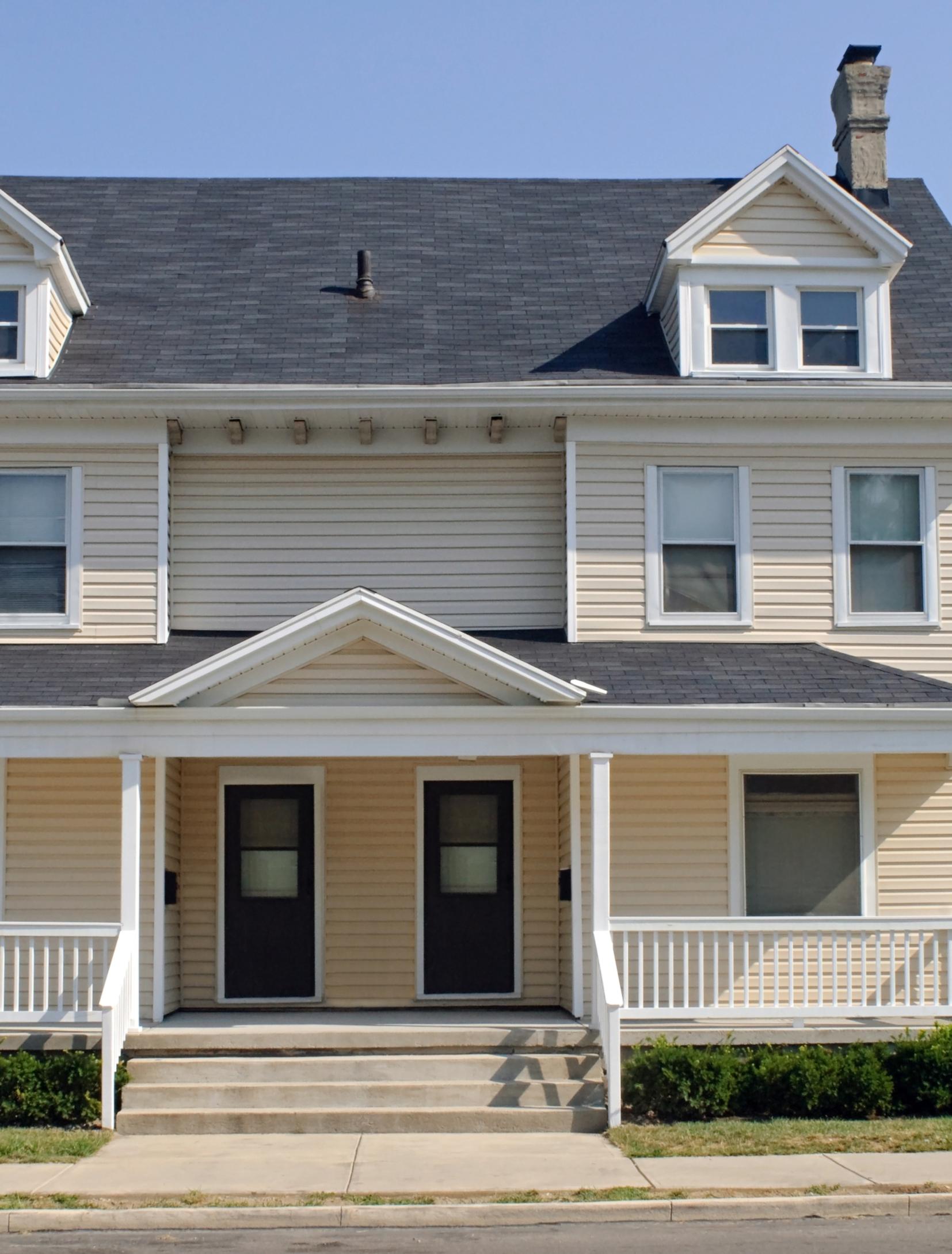Investor's Guide TO BUYING
SINGLE FAMILY RESIDENTIAL




RandallHenderson has been a single family real estate investor and serial realty entrepreneur since 2001, and has bought and sold dozens of homes. He has also coached hundreds of start-up property management companies in his role as Executive DirectorofTrainingatPropertyManagement,Inc.


So you want to build a real estate empire? Or maybe you just want to get started by buying a rental Real estate is traditionally an importantpartofaninvestor'sportfolio.Thereasonswhyare varied, buthereareafewofmyfavorites:

Tangible - Want to know how your investment is faring? Simply drive on by. This is not a piece of paper, it is a piece of theearth.

Leverage - Real estate investors are controlling large assets witha fractionofthevalue. Itistheentireasset thatgrows,not simplythecashinvested.Thatgiveslegstothedownpayment, allowinghighercashoncashthroughappreciation.
Control - In realty, unlike the stock market, investors do not have to trust a board of strangers to determine what happens totheirmoney.Wanttosell?Improve?Gorightahead.
Limited Resource - A very simple concept here: Short of colonizing the moon or receding oceans, they're not making anymoreearth.
CashFlow- Although often overblown in real estate investing, therearemanyrealestatepropertiesthatactuallydoproduce cash flow. The trick is to buy it right, plan ahead, lower expectations, and play the long game. Your cash flow will almostalwaysincreaseoverthelongterm.
Appreciation - Zoom out to see the power of appreciation. Although there are markets, sub-markets, and micro-markets (think: neighborhoods), all property in the USA increases over time.Thenationwideaverageisaroundfourpercentperyear.
Tax advantages - A bit of a tricky one and sometimes overlooked due to the recapturing of depreciation upon sale. There is power however, in an increase of your cash flow during the typical time of lower cash availability, at the beginningoftheinvestmentlife.
It is not all rainbows and butterflies in the single family investment world. Herearesomeareastobeawareofpriortojumpingin:
Vanishing Equity - Remember that equity depends entirely on the market, and rises or falls based on conditions outside of the property. Althoughrealestategrowsovertime,itmayfallintheshorttermandyour equity position could be compromised. Keep this in mind as you determine when and where to invest. Equity is not real until you sell or refinance.Itisphantomprofit.
The True Cost - Home ownership typically costs more than one might expect, and it goes doubly so for a rental. Whether it be a hot water heater leak, a roof replacement, lawn care, tenant damages, or evictions, one large event on a property could undermine an entire year's cash flow. Thinklong-term,notshorttofindthetruereturnonyourinvestment.
InvestorInvolvement - Unlike other types of investments, there is more involvement from the investor on single family homes. It is a sideeffect of having control (see above). That means that single family real estateinvestingisnot'set-itandforget-it'.Youwillneedtomakedecisions about maintenance, tenants, capital improvements, etc. That level of hands-on involvement dissuades some from the single family investment vehicle.
One of the challenges of evaluating an individual property is that the situation can change immensely based on how the property is purchased. How much money is put down? What is the mortgage payment? The answers to those questions depend entirely on the investor themselves and their situation. So the exact same property might be a good investment for one person with a better credit rating and more cash available, but could be a bad investment for another person.
You can try to normalize these factors by using tools typically used in commercial investments, such as cap rate or IRR. The challenge is that the tools may not take into account large expenses that could arise based on evictions, repairs, or capital expenditures. Over time, it is much easier to use those tools to evaluate the return on your investment, but it is more difficult to use them proactively.Youcanreadmoreonthese or . here here
Having said that, you should still use a tool, a spreadsheet, or something to evaluate each property independently prior to purchasing. is an example of Here one. You'll need the following info to truly understand the investment. I have includedsomeestimatesforyoubasedonmarkettrendsandhistoricaldata.

Ÿ Annual taxes (varies)
Ÿ Annual insurance (~$500 but could vary)
Ÿ Annual maintenance and capital expenses estimate (~10%)
Ÿ Professional property management/leasing cost (~10-12%)
Ÿ Vacancy cost (~5% over the life of the investment)
Ÿ Mortgage payment (varies depending on how you buy)
Ÿ Cost of buying
Income:
Ÿ Market Rent (here I would recommend consulting a property management company - finding an accurate number through simple online research can be misleading and often inflate actual rent amounts)
All of the above should also include an increase of 2-3% per year over the life of the investment. By simply using an Excel sheet or any tool available online, with the numbers above, you can calculate or estimate cash flow. As a rule of thumb, when you're comparing the total monthly mortgage payment (including PITI) to the projected market rent, you will want to have at least a few hundred dollars differencetoaccountforthetrueexpensesontheproperty.
What should be the role of an agent or broker when buying a real estate investment? Because properties available on the MLS (which represents a huge majority of the properties for sale) have already had a negotiated rate offered to a buying agent, you should ALWAYS have an agent or broker help you buy an investmentproperty.Itdoesn'tcostyouathing,andwillofferalayerofadditional protection while navigating the real estate contract. After all, the cost of a failed transaction can be high. Not to mention the bird-dogging and showing hoops an agentorbrokercanjumpthroughtomakeiteasierforyou.

Another big benefit a realtor can provide is to set up automated lists for you to notify you immediately if a property hits the market that meets your qualifications.

However, it is very rare to find a real estate agent who can help you look at and evaluate properties to the level of detail needed. They are not trained for that. Remember how they are paid. In other words, don't ask the barber if she thinks you need a haircut, and don't ask the butcher what you should cook for dinner. Youneedtoowntheanalysisofyourinvestmentbeforeyoupullthetrigger.
One unexpected area you may look for an agent or broker that knows the investment business is at a property management company. In nearly every state, managing property requires a real estate license, and those companies have more experience working with rentals. Typically, they will understand more of the true costs of an investment property (maintenance, capital improvements, tenant issues,vacancy,etc.).

Your options for loans are more limited for an investment than they would be for an owner-occupied property. Lenders will require a higher down payment and potentially other terms as an investor. However, the higher down payment will create more cash flow. You just have to watch your margins carefully. But with creativityanddetermination,youcanfindoptionsforfinancing.
Toreadmoreaboutloanoptionsandwheretogetthem, and area here here coupleofexcellentarticles.
Also, don't forget about the closing costs of a loan. The buyer will pay typically 2-4% in closing costs, which consist of a myriad of costs in buying a house. Your lender, upon loan application, will give you an estimate of the closing costs. is an article detailing more about a buyer's closing costs. Here Alternatively, you can build those costs into the loan itself. You would accomplish that by offering the seller an amount above the final price, and then including an addendum asking the seller to pay your closing costs of up to a certain amount. That will effectively 'reduce' your offer to the seller by thatamount.



Investing and Speculation are NOT THE SAME - Don't confuse the two, or you will get burned. One of my favorite sayings in property investing is that you make your money on the purchase, not the sale. This may seem counterintuitive to what I wrote above about the long-term game, but this advice should help you shift your thinking about the kind of deals you're looking for. In other words, find a place with equity built-in, or where equity can be created quickly perhaps through improvements. Pay attention to trends in the market and in the neighborhood. For example, neighborhood phase completions in new builds can pushallvaluesup.Thinkbig,butbuylocal.
Out of State/Area - Should you look at investments out of state? The answer to thatismaybe,butonlyifyoureyesarewide-open.Itwilladdlayersofdifficulty to an investment, and it puts more pressure on hiring the right property management company. Repairs, evictions, capital improvements, curb appeal, andotherareasaremoredifficulttomanagefromafar.
Deals abound - Don't rush into an investment. Remember, there are always moredealsthanthereismoney.
Locationmatters-Asalwaysinrealestate:location,location,location.Thesameis true for an investment property. Cash flow matters, but appreciation is still king in single family investing. That means that investors should pay attention to local trendsandareas.
Onceyouidentifyapropertywithyouragent,youwillwriteupanoffertotheseller.
Hereareafewthingstokeepinmind:
Pay close attention to the deadlines. Leave yourself plenty of opportunity for a full due diligence, and push your appraisal/financing deadline out far enough to be safe.

Your financing details, including the amount of earnest money, can act as a signal in the strength (or weakness) of your offer. Everything in the offer sends a message. Use that to your advantage.
Some states allow the closing costs to be built into the loan, by asking the seller to pay for them. If you are trying to minimize your cash outlay, this may be an avenue. However, it does weaken your position somewhat.
Let the due diligence begin. I highly recommend using a qualified home inspector for a professional report about the issues of each home. It doesn't cost very much, and can discover big problems that aren't always readily apparent. Don't rely on the sellers' disclosures. Remember, “caveat emptor” or “buyer beware”. It is up to you to find out everything about a property. Use all of the available resources including title searches, inspections (Meth? Mold? Asbestos? Water damage? Wiringissues?etc.),taxrecords,physicalvisits,etc.
Damages uncovered and issues found become another opportunity for seller concessions and further negotiations. That is why the due diligence period is so important. You will not usually get all that you ask for in a repair request, but you will most likely get some. That could come in the form of a seller crediting you by reducing the purchase price, or of the seller actually doing the repairs. Depending on the market, it is possible that a seller will not address any of your concerns. You candecideatthatpointtomoveforwardorcancelthecontract.
During this period you are also finalizing your financing for the property. Be sure to work with a reputable lender, and see the links above for more details on loan options. Leave plenty of time just in case it takes longer than you expected to receive approval, conditional approval, or a denial. That way your earnest money is not at risk if you need to cancel. The lender will also arrange for and order the appraisal,althoughyouwillpayforitatthispointinthecontract.
Is the appraisal completely out of your hands? In most cases yes, but there is a tip that I have used several times to make sure you give yourself your best chance for an on-time and at-par appraisal. Have your real estate agent search in the area of the subject property for good comps that justify the offer price. Once several are found, print them out and leave them for the appraiser to pick up when they are at the property. That will make the appraiser's job a bit easier in finding comps.

Now that you own the property, it's time to move quickly. Your mortgage payment is due just around the corner, and you have some work to do and decisions to make.

One mistake that many first time investors make is to over-improve the property. They fix it up and make decisions as if they were moving in themselves. This is a huge waste of cash. In most cases, capital improvements do not result in significantly more rent and do not improve the value of the property significantly. Fixer-uppers do not generally make the best rentals, because the amount of cash requiredupfrontunderminesthereturn.Theexceptiontothatwouldbewherethe repairs are financed as part of the loan, but the caution there is in the cash flow. Try not to “fall in love” with the property Generally, emotions undermine investments and that definitely holds true in single family rentals. Here are four verysimplerulestofollowinhowtoimproverentalproperties:
1. Ifit'smissing,replaceit.
2. Ifit'sbroken,fixit.
3. Ifit'schipping,paintit.
4. Ifit'sdirty,cleanit.
Beyondthat,yougenerallyshouldnotimprovetheproperty.Theexceptionstothat rulemightbethingslikefinishingabasementoraddingabathroom.
Here is the final improvement tip: There is one thing, one simple thing that should be done every time that makes a dramatic difference in the rental home. What is thisonesuperfix-allsolutionthatmustbeapplied?SOAP.Acleanhomethatsmells nicewillmakethebiggestdifferenceinhowquicklyatenantrentsit.
Should you hire a company to manage the property for you? The answer is a bit more complex than you may think. Property management companies will be able tohelpyouwithvariousprocessesonyourpropertyincluding:
Ÿ Preparingthepropertyforlease
Ÿ Findingtherightmarketrenttocharge
Ÿ Finding,screening,andplacingthetenant
Ÿ Managingtheleaseitself,includingrentcollection
Ÿ Dealingwithtenantissues,repairs,leasecompliance,evictionsifnecessary
Property management companies will typically charge you a one-time fee for leasing the property, and an ongoing percentage of rent to manage the property. The ongoing fee is typically between 7-10%, but that varies significantly based on location.
In my experience, most investors who self-manage make a couple of huge mistakes that wouldhavebeenavoidedwiththirdpartymanagement:
1. Mis-price the property. This usually happens due to a lack of experience, or from pricing the property based on how much the mortgage is, or relying on limited market data from sites like Zillow/Trulia. The cost of this mistake is usually high due to vacancy. Occasionally, an investor will undercut the rent and miss out on profits. This also happens when a tenant stays for several years, and the investor did not buildinarentescalationclauseintothelease.
2. Allow bad tenants to stay for a long period of time, and/or not hold the tenants responsible for damages. Self-managed investors are more susceptible to tenant's reasonsfornotpayingrent,andloseagreatdealofprofitfromlostrents.Orworse, theydon'tholdthetenantaccountableandenduplosingprofitsonrepairs.
The price of third party management is well worth it to avoid these two giant mistakes. Nottomentionmostself-managedinvestorsdon'ttypicallyhaveagood screening tool to find good tenants. Also, property management companies will typically do a better job of maintenance during the lease and deposit disposition at theendofthelease.
If you feel that you can handle these issues, and can avoid common mistakes, then you perhaps should manage the property yourself. However, as you increase your portfolio to more than one rental, I highly recommend using a third party managementcompany.
Real estate is a powerful investment vehicle, and single family homes are an excellent place to begin. With some planning and a little cash, you can get started building your own portfolio. Remember to zoom out and think long term. A $200,000 property that appreciates at 4% per year will be worth almost $300,000 after 10 years, not to mention the increased cash flow, paid-down equity, and tax advantagesoverthatsameperiod.
I hope this article helps you get a little more informed about single family investing. Goodluckandhappyhousehunting!